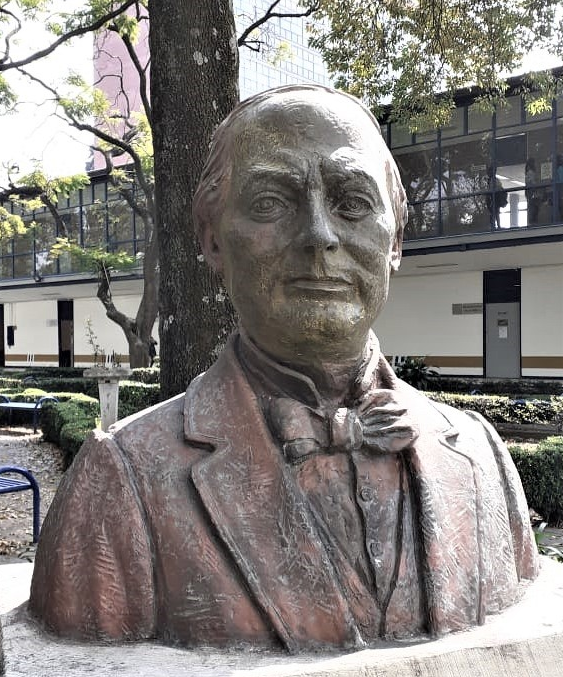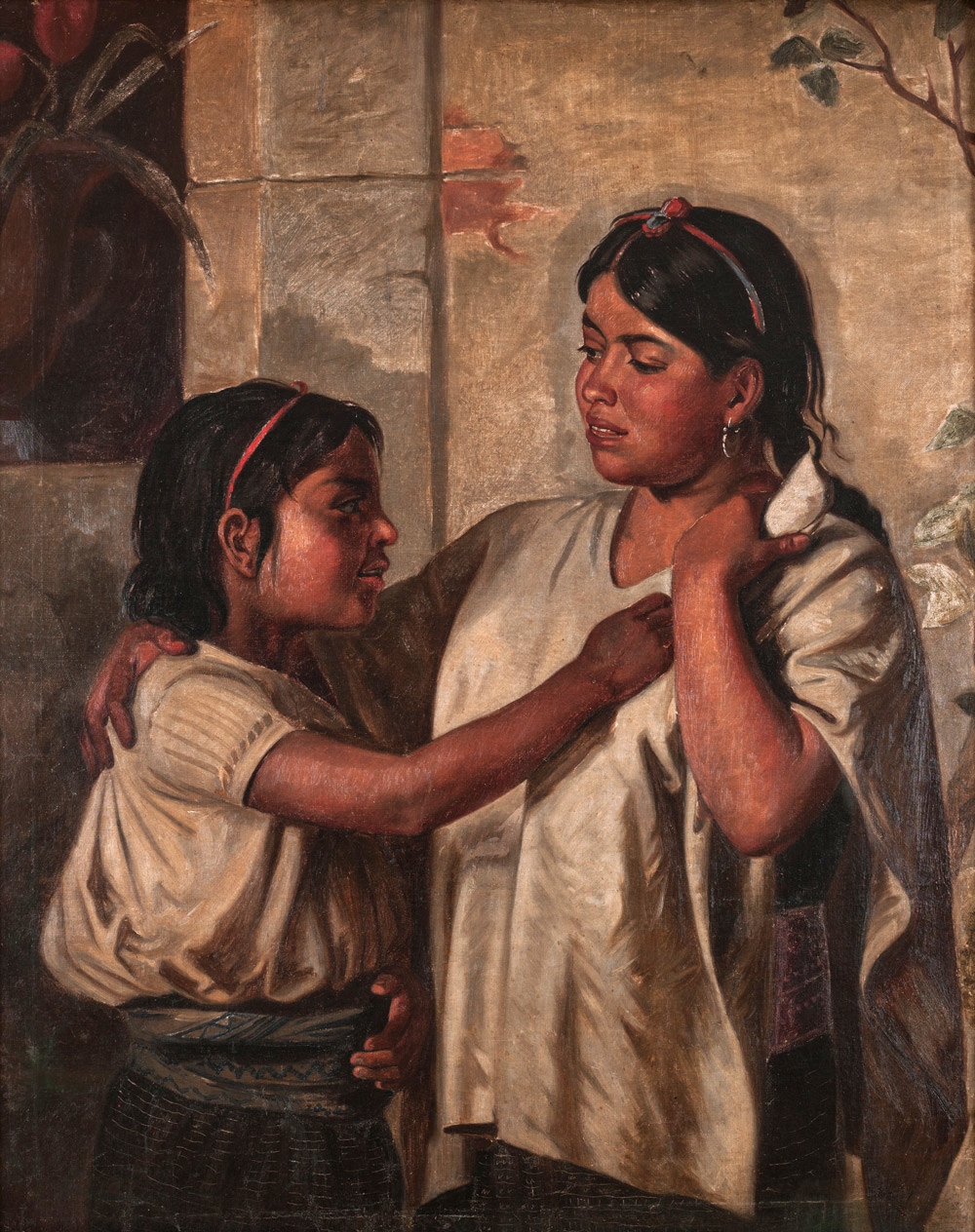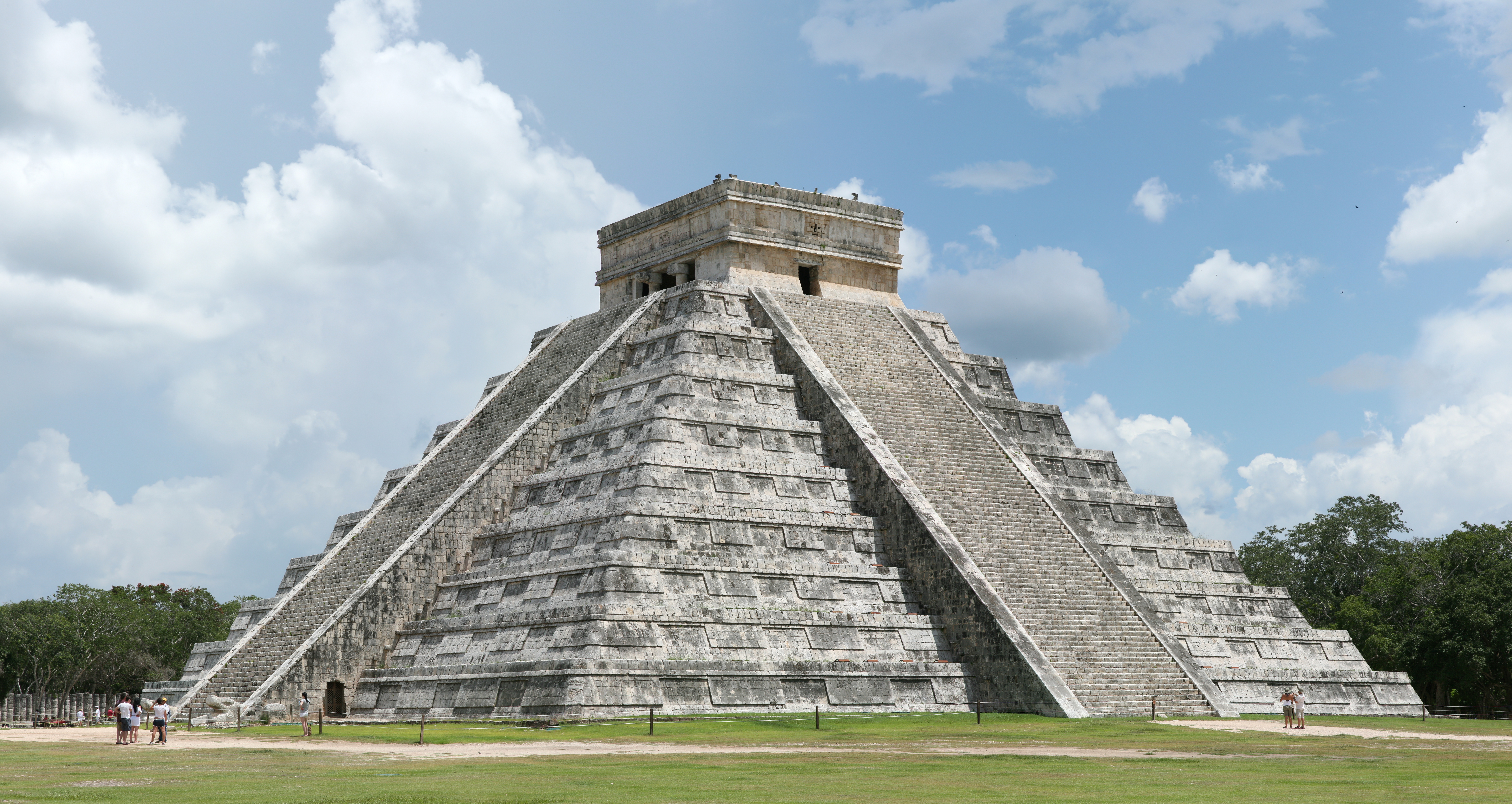|
Manuel Lozada
Manuel Lozada, nicknamed "The Tiger of Álica", was a regional ''caudillo'' based in the region of Tepic, Mexico. He was born in 1828 in the Tepic Territory, Mexico and died on July 19, 1873, in Loma de los Metates, Nayarit. During the Second French Intervention in Mexico he supported the Second Mexican Empire, but switched sides as the Empire began to falter in 1866. After the triumph of the Republic in 1867 he ran afoul of the Mexican government who had him executed as a bandit in 1873. Manuel Lozada is still considered a controversial figure in Latin American history. Biography Manuel Lozada was of Mestizo descent as well as being a member of the Cora tribe. He was born to Norberto Garcia and Cecilia González in 1828. His father died when he was a very young child. Lozada's mother lacked the means to raise him so he was adopted by his uncle, José María Lozada, whose surname he adopted. As a boy, he helped his uncle take care of animals on the family farm. When Lozada was y ... [...More Info...] [...Related Items...] OR: [Wikipedia] [Google] [Baidu] |
Nayarit
Nayarit (), officially the Free and Sovereign State of Nayarit ( es, Estado Libre y Soberano de Nayarit), is one of the 31 states that, along with Mexico City, comprise the Federal Entities of Mexico. It is divided in 20 municipalities and its capital city is Tepic. It is bordered by the states of Sinaloa to the northwest, Durango to the north, Zacatecas to the northeast and Jalisco to the south. To the west, Nayarit has a significant share of coastline on the Pacific Ocean, including the islands of Marías and Marietas. The beaches of San Blas and the so-called " Riviera Nayarit" are popular with tourists. Besides tourism, the economy of the state is based mainly on agriculture and fishing. It is also one of two states where the tarantula species '' Brachypelma klaasi'' is found, the other being Jalisco. Home to Uto-Aztecan indigenous peoples such as the Huichol and Cora, the region was exposed to the '' conquistadores'', Hernán Cortés and Nuño de Guzmán, in ... [...More Info...] [...Related Items...] OR: [Wikipedia] [Google] [Baidu] |
Sebastián Lerdo De Tejada
Sebastián Lerdo de Tejada y Corral (; 24 April 1823 – 21 April 1889) was Mexican liberal politician and jurist who served as the 27th president of Mexico from 1872 to 1876. A successor to Benito Juárez, who died in office in July 1872, Lerdo de Tejada was elected to his own presidential term in November 1872. Previously, he served as Chief Justice of the Supreme Court. Juárez's political rival, liberal General Porfirio Díaz, had attempted a coup against Juárez, but his Plan de la Noria failed and Díaz was eliminated as a political rival during Lerdo de Tejada's 1872–1876 term, giving him considerable leeway to pursue his program without political interference. During his term, he succeeded in pacifying the country after decades of political unrest and strengthening the Mexican state. He was elected for another term in 1876, but was overthrown by Porfirio Díaz and his supporters under the Plan of Tuxtepec, which asserted the principle of no-reelection to the presid ... [...More Info...] [...Related Items...] OR: [Wikipedia] [Google] [Baidu] |
Indigenous Mexicans
Indigenous peoples of Mexico ( es, gente indígena de México, pueblos indígenas de México), Native Mexicans ( es, nativos mexicanos) or Mexican Native Americans ( es, pueblos originarios de México, lit=Original peoples of Mexico), are those who are part of communities that trace their roots back to populations and communities that existed in what is now Mexico before the arrival of the Spanish. The number of indigenous Mexicans is defined through the second article of the Mexican Constitution. The Mexican census does not classify individuals by race, using the cultural-ethnicity of indigenous communities that preserve their indigenous languages, traditions, beliefs, and cultures. According to the National Indigenous Institute (INI) and the National Institute of Indigenous Peoples (CDI), in 2012 the indigenous population was approximately 15 million people, divided into 68 ethnic groups. The 2020 Censo General de Población y Vivienda reported 11.8 million people living in h ... [...More Info...] [...Related Items...] OR: [Wikipedia] [Google] [Baidu] |
Deaths By Firearm In Mexico
Death is the irreversible cessation of all biological functions that sustain an organism. For organisms with a brain, death can also be defined as the irreversible cessation of functioning of the whole brain, including brainstem, and brain death is sometimes used as a legal definition of death. The remains of a former organism normally begin to decompose shortly after death. Death is an inevitable process that eventually occurs in almost all organisms. Death is generally applied to whole organisms; the similar process seen in individual components of an organism, such as cells or tissues, is necrosis. Something that is not considered an organism, such as a virus, can be physically destroyed but is not said to die. As of the early 21st century, over 150,000 humans die each day, with ageing being by far the most common cause of death. Many cultures and religions have the idea of an afterlife, and also may hold the idea of judgement of good and bad deeds in one's life (heaven, ... [...More Info...] [...Related Items...] OR: [Wikipedia] [Google] [Baidu] |
Mexican Outlaws
Mexican may refer to: Mexico and its culture *Being related to, from, or connected to the country of Mexico, in North America ** People *** Mexicans, inhabitants of the country Mexico and their descendants *** Mexica, ancient indigenous people of the Valley of Mexico ** Being related to the State of Mexico, one of the 32 federal entities of Mexico ** Culture of Mexico *** Mexican cuisine *** historical synonym of Nahuatl, language of the Nahua people (including the Mexica) Arts and entertainment * "The Mexican" (short story), by Jack London * "The Mexican" (song), by the band Babe Ruth * Regional Mexican, a Latin music radio format Films * ''The Mexican'' (1918 film), a German silent film * ''The Mexican'' (1955 film), a Soviet film by Vladimir Kaplunovsky based on the Jack London story, starring Georgy Vitsin * ''The Mexican'', a 2001 American comedy film directed by Gore Verbinski, starring Brad Pitt and Julia Roberts Other uses * USS ''Mexican'' (ID-1655), United Sta ... [...More Info...] [...Related Items...] OR: [Wikipedia] [Google] [Baidu] |
Mexican Guerrillas
Mexican may refer to: Mexico and its culture *Being related to, from, or connected to the country of Mexico, in North America ** People *** Mexicans, inhabitants of the country Mexico and their descendants *** Mexica, ancient indigenous people of the Valley of Mexico ** Being related to the State of Mexico, one of the 32 federal entities of Mexico ** Culture of Mexico *** Mexican cuisine *** historical synonym of Nahuatl, language of the Nahua people (including the Mexica) Arts and entertainment * "The Mexican" (short story), by Jack London * "The Mexican" (song), by the band Babe Ruth * Regional Mexican, a Latin music radio format Films * ''The Mexican'' (1918 film), a German silent film * ''The Mexican'' (1955 film), a Soviet film by Vladimir Kaplunovsky based on the Jack London story, starring Georgy Vitsin * '' The Mexican'', a 2001 American comedy film directed by Gore Verbinski, starring Brad Pitt and Julia Roberts Other uses * USS ''Mexican'' (ID-1655), United St ... [...More Info...] [...Related Items...] OR: [Wikipedia] [Google] [Baidu] |
19th-century Mexican People
The 19th (nineteenth) century began on 1 January 1801 ( MDCCCI), and ended on 31 December 1900 ( MCM). The 19th century was the ninth century of the 2nd millennium. The 19th century was characterized by vast social upheaval. Slavery was abolished in much of Europe and the Americas. The First Industrial Revolution, though it began in the late 18th century, expanding beyond its British homeland for the first time during this century, particularly remaking the economies and societies of the Low Countries, the Rhineland, Northern Italy, and the Northeastern United States. A few decades later, the Second Industrial Revolution led to ever more massive urbanization and much higher levels of productivity, profit, and prosperity, a pattern that continued into the 20th century. The Islamic gunpowder empires fell into decline and European imperialism brought much of South Asia, Southeast Asia, and almost all of Africa under colonial rule. It was also marked by the collapse of ... [...More Info...] [...Related Items...] OR: [Wikipedia] [Google] [Baidu] |
Mexican Generals
Mexican may refer to: Mexico and its culture *Being related to, from, or connected to the country of Mexico, in North America ** People *** Mexicans, inhabitants of the country Mexico and their descendants *** Mexica, ancient indigenous people of the Valley of Mexico ** Being related to the State of Mexico, one of the 32 federal entities of Mexico ** Culture of Mexico *** Mexican cuisine *** historical synonym of Nahuatl, language of the Nahua people (including the Mexica) Arts and entertainment * "The Mexican" (short story), by Jack London * "The Mexican" (song), by the band Babe Ruth * Regional Mexican, a Latin music radio format Films * ''The Mexican'' (1918 film), a German silent film * ''The Mexican'' (1955 film), a Soviet film by Vladimir Kaplunovsky based on the Jack London story, starring Georgy Vitsin * ''The Mexican'', a 2001 American comedy film directed by Gore Verbinski, starring Brad Pitt and Julia Roberts Other uses * USS ''Mexican'' (ID-1655), United Sta ... [...More Info...] [...Related Items...] OR: [Wikipedia] [Google] [Baidu] |
History Of Mexico
The written history of Mexico spans more than three millennia. First populated more than 13,000 years ago, central and southern Mexico (termed Mesoamerica) saw the rise and fall of complex indigenous civilizations. Mexico would later develop into a unique multicultural society. Mesoamerican civilizations developed glyphic writing systems, recording the political history of conquests and rulers. Mesoamerican history prior to European arrival is called the prehispanic era or the pre-Columbian era. Following Mexico's independence from Spain in 1821, political turmoil wracked the nation. France, with the help of Mexican conservatives, seized control in the 1860s during the Second Mexican Empire, but was later defeated. Quiet prosperous growth was characteristic in the late 19th century but the Mexican Revolution in 1910 brought a bitter civil war. With calm restored in the 1920s, economic growth was steady while population growth was rapid. Before European arrival Large ... [...More Info...] [...Related Items...] OR: [Wikipedia] [Google] [Baidu] |
Ramón Corona
Ramón Corona (18 October 1837, Tuxcueca, Jalisco, Mexico – 11 November 1889, Guadalajara, Jalisco) was a liberal Mexican general and diplomat. He served with distinction during the Second French Intervention in Mexico and after the triumph of the republic, the government assigned him to hunt down the local ''caudillo'', Manuel Lozada. He served as the Mexican minister to Spain but upon his return to the country, Corona was murdered in 1889. Biography He was in business in his native town, but had to leave the place on account of persecution by Manuel Lozada, a caudillo, who became a kind of independent ruler in the Tepic territory. Corona joined the liberals, entered the army, soon obtained the rank of general, and fought against the army of Maximilian, especially in the western states, and the French troops never became masters of that part of the country. Corona organized the Army of the west, 8,000 strong, in 1866, and crossed the country, defeating the French in ma ... [...More Info...] [...Related Items...] OR: [Wikipedia] [Google] [Baidu] |



